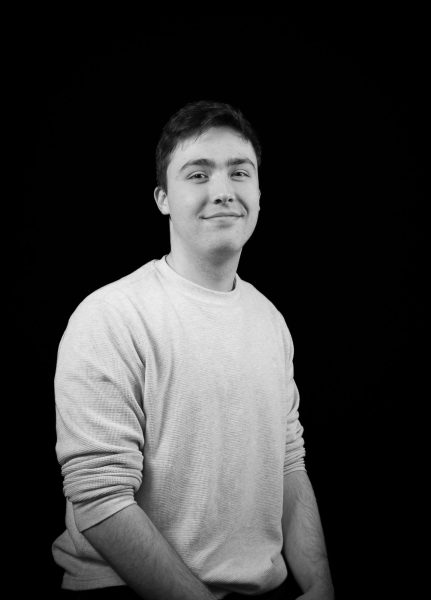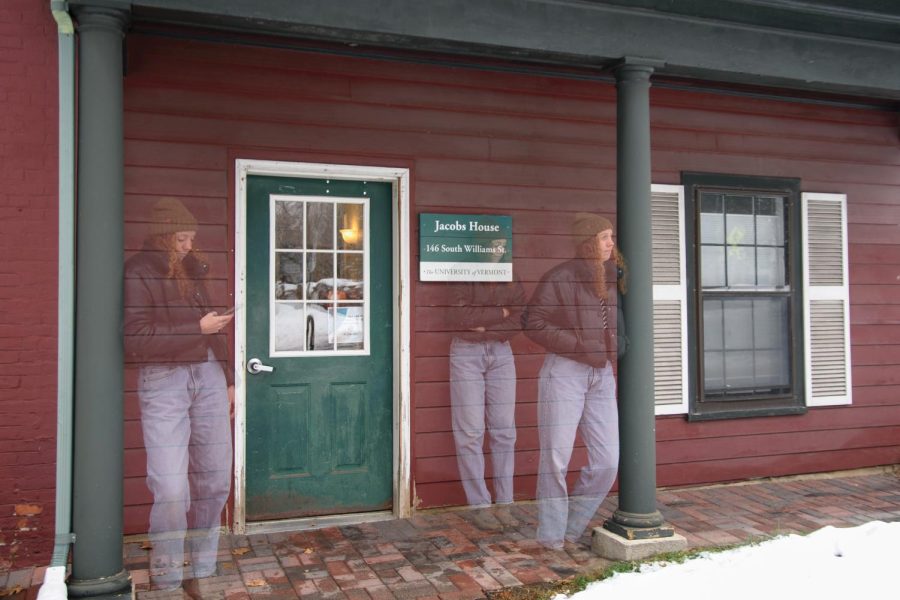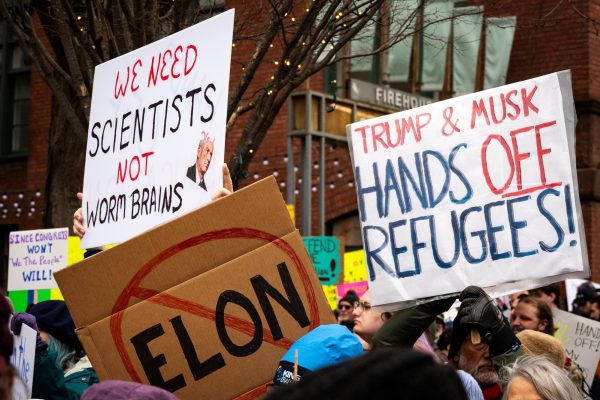Campus mental health support system has year-long closed waitlist
Photo Illustration: A student waiting outside the Counseling and Psychiatry Services office at 146 South Williams St. Nov. 16. In spring 2020, CAPS implemented a triage system, but some students feel neglected by the service.
Content warning: mentions of eating disorder, suicide
Vermont Psychological Services has stopped admitting people to its waitlist, the wait for which is now over a year long, VPS Director Kathleen Kennedy said.
There are several factors contributing to the long waitlist, including increased demand during the COVID-19 pandemic, understaffing, the specialized services that VPS offers and VPS’s affordability, Kennedy said.
“We stopped taking names because we felt like we were potentially giving people false hope,” Kennedy said.
VPS is a nonprofit outpatient mental health clinic that provides long-term therapy and psychological services to UVM students and the larger Burlington area, according to their website. They offer services including cognitive behavioral therapy and treatment for anxiety, depression and other affective disorders.
VPS also serves as the training clinic for UVM graduate students getting their Ph.D.s in clinical psychology, with the students taking on their own caseloads, Kennedy said. However, the clinic is still working at maximum capacity, making the long wait list especially frustrating.
“It’s a terrible problem,” she said. “They all have a full caseload.”
VPS is attempting to focus its efforts on patients who are in most need of care, Kennedy said.
Kennedy said clients who are able to manage their symptoms are being discharged in order to prioritize providing services for those who need them most.
“If a client is doing well, they can’t just continue to participate in therapy because they like it,” she said. “We really want to treat people who are experiencing impairment.”
Efforts are underway to shorten the waitlist, such as gauging the interest in treatment of those on the list, Kennedy said.
“Our hope is that we’ll be able to call out the people who don’t want to be on the waitlist, which will shorten it and then we can start to welcome people onto our waitlist again,” she said. “We’ll have to see what happens. It’ll take a couple of weeks to do that.”
Long wait times for mental health care are not specific to VPS and are common among similar institutions in the Burlington area, Kennedy said.
“Everybody we know is also dealing with the same issue, with a lengthy waitlist, unfortunately,” she said.
Still, VPS recognizes their inability to meet demand for mental health services is a problem, Kennedy said.
“We really do feel like a big part of the UVM community and it does feel frustrating to us that we’re not able to serve as many undergrads and grad students as we would like to be serving right now,” she said.
The other option for student mental health services on campus, Counseling and Psychiatry Services, does not have a waitlist due to the format of the services they offer, said CAPS Associate Director Jennifer Phillips.
“We designed a system with the intention of providing rapid access to students and so we found that, at this point in students’ lives, even developmentally, things happen at such a fast pace that we wanted to be responsive to that,” she said.
In contrast to VPS, CAPS provides more short-term care, according to an Oct. 18, 2018 Cynic article. They also offer services such as individual counseling, group counseling, psychiatry and drop-in consultations, according to the CAPS website.
CAPS redesigned their system of operation in spring 2020 to provide more rapid-access care to students, Phillips said. The primary feature of the new system is the triage system.
“The purpose of the triage appointments is to provide immediate support around whatever is going on for students, to share information about our services and supports, and then, together with the student, collaborate around what are the best next steps,” she said.
There is significant student frustration with on-campus mental health services, as is being expressed on the Instagram page @dearuvm. The account posts anonymous student experiences about their experiences with CAPS and VPS.
Many of the recurring frustrations expressed on the account include getting ghosted by CAPS therapists and the feeling of neglect students get from interactions with CAPS.
@dearuvm declined the Cynic’s request for comment.
Student demand for CAPS services has been on the rise in recent years, according to a Nov. 8, 2019 Cynic article.
Phillips is aware of the Instagram account and she finds it disheartening that this is a shared feeling among students, she said.
“I would like to believe that that isn’t happening and if it is happening, it feels like really important information to get back to CAPS […] it is absolutely something we would want to address,” Phillips said.
Phillips said she believes much of students’ frustration might stem from misinformation on how to reach CAPS most efficiently.
“The best way to be in touch with us is to call,” she said. “However, we know that’s a barrier for some students in terms of not wanting to make the phone call or feeling anxious about that. They’re also able to schedule it through the MyWellbeing health portal to schedule the triage appointments.”
Assumptions surrounding the number of guaranteed sessions can also lead to misunderstanding among students, Phillips said.
“While we operate on what’s considered a short-term model […] for the majority of students, the four to six sessions do end up meeting their needs,” she said. “I think sometimes students hear the number and worry that it won’t be sufficient, and sometimes it ends up being sufficient.”
The nature of the triage appointments being focused on providing service within 24 hours may be a factor in students’ misunderstanding during the schedule process, Phillips said.
“Because you can’t schedule more than 24 hours out, sometimes when students try to schedule online it looks like nothing’s available, when in fact there’s nothing available in the timeframe that they’re looking at,” she said.
Junior Sidney Thompson said their experience with CAPS in spring 2020 was unhelpful and not focused around the problems they were experiencing.
“They seemed more concerned about me not trying to kill myself than actually giving me any resources that would help me to do better in my classes,” they said. “I wasn’t even having a problem with suicidality, so it seemed a little counter-productive.”
It took two semesters after Thompson initially reached out to CAPS to receive the appropriate accommodations for their mental illness, they said. They felt the inconvenience could have been avoided if CAPS had recognized their difficulties from the beginning.
“I ended up getting a therapist outside for UVM a few months later after the semester had ended, and that was what was helpful for me,” they said. “I feel like [CAPS] kind of failed me a little bit.”
Thompson feels as if CAPS doesn’t actually listen to students’ problems and concerns, they said.
“It’s more about their reputation and making sure they have this service, even if the service isn’t actually helpful to a lot of people,” they said.
Sophomore Sarah Pettineo said she went to CAPS for treatment for an eating disorder and anxiety and that the solutions CAPS provided were things she could have found online.
“The therapists at CAPS seem like they don’t understand the gravity of your issue or situation,” she said.
Pettineo also said she feels this is a broader issue on campus.
“UVM advertises that they are really good with mental health, but in reality they are not really understanding or willing to help anyone who has anything other than a minor, quick, fixable issue,” she said.
CAPS has an after-hours phone service for students who need services, which can be reached at (802) 656-3340. Students should make appointments over the phone or through the MyWellbeing portal.

(he/him)
Noah Diedrich is a senior history and english double major from Arlington, Vermont. He became a Cynic news reporter as a sophomore. When not...







